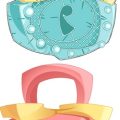Understanding Your 6-8 Week Postnatal Check
The 6-8 week postnatal check is a really important milestone for both you and your baby here in Britain. After those early, whirlwind weeks of new parenthood, this appointment gives you a chance to pause, reflect, and check in on how things are going—physically and emotionally. The NHS recommends every mum and baby have this appointment with their GP. It’s not just a box-ticking exercise; it’s about making sure you’re both recovering well, getting the right support, and catching any potential issues early on. For mums, the postnatal check is a safe space to talk about everything from physical healing after birth to mental wellbeing (including how you’re coping with the ups and downs of new motherhood). For babies, it’s a vital opportunity to monitor their growth and development, ensuring they’re thriving. This check-up is part of the standard NHS care pathway, so you can expect your GP surgery to invite you along when your little one is around six to eight weeks old. It’s an essential step that helps lay strong foundations for both your health and your baby’s as you settle into family life in the UK.
2. What Happens During the Appointment
Walking into your 6-8 week postnatal check can feel a bit daunting, especially if you’re still adjusting to life with your new baby. To help you prepare, here’s a step-by-step breakdown of what typically happens during this important appointment with your GP in the UK.
Arrival and Paperwork
Once you arrive at your GP surgery, you’ll likely need to check in at reception. It’s a good idea to bring your red book (your baby’s Personal Child Health Record), as well as any forms or letters you’ve received about the appointment. Sometimes, there may be a few forms to fill out regarding both your health and your baby’s progress.
Your Physical Health Check
The first part of the appointment usually focuses on mum. Your GP will ask how you’ve been feeling physically since the birth. They might check:
| What’s Checked | Why It’s Important |
|---|---|
| Healing after birth (stitches, caesarean scar) | To ensure proper healing and spot any signs of infection |
| Blood pressure | To rule out postnatal complications like pre-eclampsia |
| Mental wellbeing (including questions about mood) | To screen for postnatal depression or anxiety |
| Contraception options | To discuss future family planning safely |
| Breast health (if breastfeeding) | To address issues like mastitis or latch problems |
| Cervical screening reminder (if due) | To keep up-to-date with regular health checks |
Your Baby’s Check-Up
Your little one gets a thorough top-to-toe check as well. The doctor will look at:
- Weight and length measurements – tracking their growth against UK percentiles in the red book.
- Physical examination – checking hips, heart, eyes, ears, mouth, and reflexes.
- Feeding and nappies – asking about how feeding is going and nappy output.
- Immunisation schedule – explaining which jabs are coming up soon.
- General development – seeing if your baby is hitting expected milestones.
A Typical Timeline of the Appointment:
| Stage | Description |
|---|---|
| Reception & Forms | Check in, paperwork, weigh baby if needed before seeing the doctor. |
| Mum’s Check-Up | Physical and emotional wellbeing discussed and examined. |
| Baby’s Examination | Dressed down for a full physical check and measurements taken. |
| Questions & Advice | Your chance to raise concerns or ask anything on your mind. |
A Few Tips from Experience:
- If possible, bring someone along for support or help holding your baby during parts of the exam.
- Write down any questions beforehand—sleep deprivation can make it easy to forget!
The whole process usually takes around 20-30 minutes but can feel quite busy—don’t worry if you need more time or follow-up appointments. GPs are used to supporting new parents at every stage of this journey.
![]()
3. Common Questions New Mums Ask
It’s perfectly normal to have a lot of questions and even worries as your 6-8 week postnatal check approaches. You might find yourself feeling unsure about what’s happening with your body or mind, or wondering if what you’re experiencing is typical for new mums in Britain. Here’s a look at some of the most common concerns:
Am I recovering from birth as I should?
Many new mums feel anxious about whether their bodies are healing properly. It’s quite common to still feel tired, achy, or notice changes down below—especially if you had stitches or a caesarean section. Don’t hesitate to mention any pain, discomfort, or unusual bleeding to your GP; they’ve heard it all before, and nothing is too small to bring up.
Is how I’m feeling emotionally normal?
The postnatal period can be an emotional rollercoaster. The “baby blues” are very common in the first couple of weeks, but if feelings of sadness, anxiety or overwhelm linger, it’s important to talk about it at your appointment. In the UK, there’s no shame in discussing mental health—your GP or health visitor can support you and connect you with local services if needed.
What about contraception now?
A lot of mums are surprised when their GP asks about contraception during the postnatal check, but it’s a standard part of care here in Britain. Even if sex is the last thing on your mind right now, it’s worth having a chat about your options—whether that’s going back on the pill, thinking about long-acting methods like the coil, or just wanting more information before you decide.
Is what I’m experiencing actually normal?
From sore nipples and hair loss to night sweats and mood swings, there’s a huge range of “normal” after having a baby! If anything feels odd to you—physically or emotionally—it’s always better to ask than worry in silence. Your GP will be used to all sorts of questions and can help put your mind at ease or refer you for extra support if needed.
Tip from my own experience
I remember feeling nervous before my own 6-week check—I was still getting used to my postpartum body and felt embarrassed about asking certain things. But my GP was so reassuring and friendly; she made it clear that no topic was off-limits and encouraged me to ask anything on my mind. If you’re ever unsure, just speak up—the NHS is there to help you through every step of new motherhood.
4. Your Baby’s First Check-up
At your 6-8 week postnatal appointment, your baby will have their very first thorough check-up—often referred to as the “baby check.” This is a big moment for both you and your little one, as it’s designed to make sure your baby is developing well and to pick up on any early concerns. As a new mum myself, I remember feeling both nervous and excited! Here’s what you can expect during this important visit in Britain.
What Does the Doctor Look For?
The GP or health visitor will carry out a head-to-toe examination of your baby. They’ll be checking several key areas:
| Area Checked | What Happens | Why Its Important |
|---|---|---|
| Growth | Weighing and measuring length & head circumference | To track healthy growth patterns and spot early signs of feeding issues or health conditions |
| Developmental Milestones | Assessing movements, responses, vision, hearing, and alertness | To ensure your baby is meeting expected milestones for their age |
| Physical Health | Examining hips, heart, lungs, eyes, genitals, and abdomen | To detect conditions like hip dysplasia, heart murmurs, or undescended testicles early on |
| Feeding & Digestion | Discussing feeding routine (breast or bottle), nappies, and digestion | To check if feeding is going smoothly and identify any concerns such as colic or reflux |
Feeding & Weight Gain: What’s Normal?
Your health professional will ask about how feeding is going—whether breastfeeding or formula feeding—and how many wet/dirty nappies your baby has each day. Steady weight gain is reassuring at this stage. Don’t worry if you’ve had a few wobbles with feeding; it’s very common in the early weeks and your health visitor can offer support or referrals if needed.
Things to Watch Out For in the Early Weeks:
- Poor feeding or refusing feeds consistently
- Noisy breathing or persistent coughs/sneezing
- Lack of eye contact or no response to loud noises by 8 weeks old
- Persistent vomiting (not just possetting)
- No wet nappies for over 12 hours or very dark urine
- Limpness, unusual floppiness, or stiffness in arms/legs
- Pale skin or yellow tinge (jaundice) lasting beyond 2 weeks old (especially if breastfed)
If anything worries you before or after the check-up, don’t hesitate to call your GP surgery or health visitor—even if you think it might be nothing. Trust your instincts; as mums in Britain often say, “better safe than sorry!” The 6-8 week check is all about catching things early so your baby gets the best start possible.
5. How to Prepare and What to Bring
Handy Tips for Your Appointment Day
Your 6-8 week postnatal check can feel a bit daunting, especially if you’re juggling new mum life on little sleep. Here’s how I made sure my visit was as smooth and useful as possible—and some tips I wish I’d known earlier!
Essential Documents to Take Along
First things first: don’t forget your red book (your baby’s Personal Child Health Record). This is essential in the UK, as it holds all your baby’s health information and will be updated during the appointment. Also, bring your NHS number (usually on your maternity notes), and any paperwork from your midwife or health visitor visits. If you’ve noticed anything unusual or have been referred for specific follow-ups, bring those letters too.
Questions? Jot Them Down!
Mum brain is real! Before your appointment, make a note of anything you want to discuss—no question is too small. You might want to ask about breastfeeding challenges, contraception options, physical recovery, mental wellbeing, or even just reassurance that what you’re experiencing is normal. Some mums also jot down questions about baby’s feeding, sleeping patterns, or vaccinations. Having a list means you won’t forget something important once you’re with the GP.
Making the Most of Your GP Visit
This check isn’t just a tick-box exercise—it’s your chance to talk openly about how you’re really feeling, both physically and emotionally. If you’re anxious or struggling with low mood, let your GP know; British healthcare teams are very supportive and it’s perfectly normal to ask for help. If possible, bring a partner or friend for support—especially if they might remember extra details or help soothe the baby during the appointment.
Top Tip:
If you’re worried about forgetting anything on the day (babies have a knack for needing a nappy change at exactly the wrong time!), pack your bag the night before with snacks, water, nappies, wipes, and maybe even a spare top for yourself—just in case.
6. Support and Resources for New Parents in Britain
Adjusting to life with a newborn can feel overwhelming, but you’re not alone—Britain has a strong network of support to help new parents after your 6-8 week postnatal check. If you have ongoing worries, or just need someone to talk to, there are plenty of options available.
Health Visitor Follow-Ups
Your health visitor is a key point of contact in the early months. They’ll usually arrange further visits after your postnatal check, either at home or at your local clinic. Health visitors offer practical advice on feeding, sleep routines, baby development, and your own emotional wellbeing. Don’t hesitate to ask questions—even if they seem small or silly!
Accessing Further Support Networks
Local children’s centres often run free drop-in sessions, baby groups, and classes where you can meet other parents and get expert advice. Your GP surgery may also have information about local breastfeeding support, mental health services, and parent groups. Charities like NCT (National Childbirth Trust) and Mind can provide additional guidance for both practical and emotional challenges.
Where to Find Advice If You’re Worried
If something doesn’t feel right—whether it’s about your health or your baby’s—don’t wait for your next scheduled appointment. Call your GP, NHS 111, or speak to your health visitor. Many areas have specialist perinatal mental health teams who understand what you’re going through. Online resources such as the NHS website and reputable charities can be helpful too, but always follow up with a professional if you’re unsure.
Remember: Seeking Help Is a Sign of Strength
Asking for support isn’t just okay—it’s encouraged here in the UK! Whether it’s a quick phone call or joining a local group, reaching out can make all the difference as you find your feet as a new parent.


